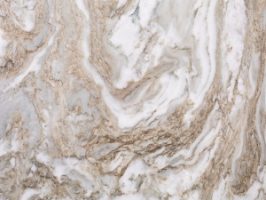Quartzite and Quartz: These two words sound almost the same and there are some similarities between the two products, but they are definitely not the same thing. There are more differences than there are similarities. Let’s examine these two beautiful but different products.
What is quartzite?
Quartzite is a 100% natural stone, created by Mother Nature and mined from the earth by men and machines. It is sandstone that is high in the naturally occurring mineral quartz. It gets subjected to high heat and immense pressure to form a dense hard rock.
What is quartz?
Quartz is a man-made product, sometimes called engineered stone. Depending on the brand and manufacturer, quartz products are composed of 90-95% naturally occurring quartz held together by binding ingredients such as resins and polymers.
How are these 2 materials the same?
- The main ingredient in both is the mineral quartz.
- They both score 7 or more on the Mohs scale of hardness.
- Both are considered excellent countertop materials.
- Abrasive cleaners should not be used on either material.
- If damaged, both can be repaired by your stone restoration pro.
How are these 2 materials different?
- Quartzite is 100% natural.
- Quartz is not.
- Quartzite is porous and needs to be sealed.
- Quartz is considered non-porous and does not need to be sealed.
- Quartzite has a natural look of depth and feel.
- Quartz, according to many, has a lack of natural depth and/or feel.
- Quartzite, while naturally beautiful, comes in a limited color pallet, usually in white, gray or brown hues. Occasionally due to iron oxide, it can have a red or pink hue.
- Quartz comes in a wide variety of patterns and colors.
- Quartzite can take the occasional hot pot or pan laid on it.
- Quartz cannot. Its polymers and resins can melt under the heat of pots, pans, and countertop appliances such as slow cookers or air fryers.
- Quartzite is UV resistant, meaning it won’t fade in sunlight, making it a great fit for outdoor kitchens.
- Quartz is not UV resistant and can fade in the sunlight coming through a window.
Both of these materials are beautiful and excellent choices for kitchen countertops, vanity tops, shower walls, bar tops and countless other stone projects. The key is to know and understand the differences between the two products so you can make an informed decision and be happy with the end result for years to come.
By Sharon Koehler. This article is one of a series of articles written and published on behalf of Surface Care PROS Partners.

